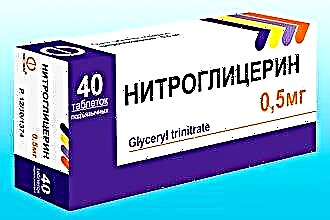Signs of uvulitis
 If a person once encounters an inflammation of the uvula in the throat, then for sure he will never forget the symptoms that accompany him. Among the most common signs of uvulitis are:
If a person once encounters an inflammation of the uvula in the throat, then for sure he will never forget the symptoms that accompany him. Among the most common signs of uvulitis are:
- feeling of the presence of a foreign object in the throat;
- nausea, vomiting;
- trouble swallowing food;
- hoarseness
- problems in the work of the speech apparatus;
- labored breathing;
- increased salivation.
Most often, the problem occurs in the morning, right after sleep, so it can cause serious anxiety, which will only aggravate the patient's condition.
When faced with the symptoms described above, you should carefully examine the oral cavity and pharynx. If the uvula has increased in size, swollen, reddened or become cyanotic, then the cause of discomfort in the nasopharynx is most likely uvulitis.
Causes
There are many reasons why the uvula can grow. An unpleasant symptom can be caused by:
- inflammatory processes caused by viral or bacterial infections;
- allergies;
- trauma;
- chemical substances;
- exposure to thermal factors;
- tumors localized in the nasopharynx.
Viral or bacterial infections are rarely accompanied by inflammatory reactions, in which the uvula may become enlarged. Most often this happens when the inflammation focus is located near the palatine process, and the edema affects the adjacent soft tissues.
The high pathogenicity of the bacteria that caused the pathology, as well as the greatly reduced protective functions of the body, can cause the inflammatory process in the throat to touch the uvula. An increase in size and swelling of the uvula can occur when:
- inflammatory infections affecting the tonsils;
- inflammatory processes affecting the nasopharynx, for example, rhinitis, pharyngitis, adenoiditis;
- retropharyngeal abscess;
- purulent inflammatory processes of the oral cavity, gums and teeth, for example, stomatitis, gingivitis, periodontitis;
- infectious diseases such as diphtheria and mononucleosis, when there is inflammation of the soft tissues of the pharynx, swollen lymph nodes, plaque on the tonsils;
- inflammatory processes of the salivary glands;
- various diseases, such as syphilis and tuberculosis.
Important! If the swelling of the uvula is caused by the above reasons, then the unpleasant symptom will most often be preceded by clinical manifestations characteristic of the underlying infection.
In this case, the patient will complain of soreness when swallowing, a feeling of tightness in the throat, shortness of breath.
Often, oncological diseases become the cause of inflammation of the uvula in the pharynx. Cancer and other types of benign and malignant neoplasms can affect the surface of the mucous membranes of the throat and mouth. Taking into account the statistics, oncological pathologies of the uvula make up about one and a half percent of the total number of cancers of the nasopharynx region, while swelling of the appendix of the soft palate can also occur with tumors of nearby organs and tissues.
Exposure to high or too low temperatures can burn the nasopharyngeal mucosa and cause inflammation of the uvula. Inhalation of vapors of various chemicals can also cause damage to the organs of the nasopharynx. Hot food and drinks, strong alcohol act as irritants in this situation. Damage to the mucous membrane occurs not only as a result of direct burns, but also as a result of excessive dryness in the oral cavity.
Important! Accidental use of acetic acid, various chemical essences, as well as rinsing with a highly concentrated soda solution can burn the uvula.
Quite often, allergies cause the tongue in the throat to grow in size and swell. Moreover, allergies can be caused not only by food, but also by household chemicals, pollen and wool. The fact that the swelling of the uvula is caused by allergies is worth considering for people prone to allergic reactions. In this case, an increase in the palatine process may be accompanied by urticaria, allergic dermatitis, Quincke's edema. In such a situation, symptoms develop rapidly, and edema occurs against the background of a satisfactory state of health.
Uvula inflammation can also occur as a complication after taking medications. In this case, allergic inflammation of the uvula is often accompanied by itching, rash, swelling of various parts of the body, and difficulty breathing. The reaction most often develops as a result of local application of a particular drug or injection of a drug.
Also, swelling of the uvula can occur as a reaction of the body to chemotherapy in the treatment of cancer.
The uvula includes a large number of small blood vessels, so inflammation develops rapidly and leads to significant edema.
 Other common causes of swelling and enlargement of the uvula in the throat include:
Other common causes of swelling and enlargement of the uvula in the throat include:
- trauma to soft tissues with solid food;
- prolonged vomiting, especially in situations where it is induced artificially;
- trauma to the uvula during medical procedures such as pharyngoscopy, dental examinations;
- snoring, which can cause swelling due to air vibrations;
- excessive addiction to smoking cigarettes, hookah;
- hereditary diseases, for example, angioedema.
Diagnostic features
When inflammation of the uvula occurs, the diagnostic procedure is usually straightforward. The specialist manages to establish the cause of the unpleasant symptom by analyzing only the patient's complaints and conducting an examination. If the diagnosis requires clarification, then in this case they resort to additional procedures.
- General blood analysis. This procedure helps to determine the nature of the disease, excluding or confirming the presence of infection. So, with an infectious disease, the number of leukocytes increases, while with an allergic nature of the onset of a symptom, an increase in the number of eosinophils in the blood occurs.
- Bacterial culture to determine the microflora that caused inflammation of the uvula will help determine the type of pathogen, as well as its susceptibility to the main types of antibiotics.
- If the doctor suspects an allergic reaction, then an immunogram or allergy diagnosis may be required.
- In order to exclude oncological diseases, the doctor may prescribe histological examinations of the tissues of the palatine uvula, X-ray examination, and tomography.
Important! If the uvula has significantly increased in size and interferes with proper breathing, you should immediately seek medical help from specialists.
Treatment
If the uvula in the throat is enlarged, what to do? First of all, you need not to worry so as not to aggravate the symptom, and try to find out the cause of its occurrence. After all, the methods of treatment depend on what caused the enlargement of the uvula.
If inflammation of the uvula is caused by infectious diseases, then treatment with antiviral drugs or antibiotics is required if the disease is caused by bacteria. Local therapy is also indicated, carried out using special antiseptic sprays (Ingalipt, Hexoral), rinsing with a soda solution (1 teaspoon per 200 ml of warm water) and infusions of medicinal herbs such as chamomile, sage, calendula.
It should also be remembered that the speed of recovery depends on the strength of the immune system. To increase the protective functions of the body during illness, you should adhere to a healthy diet, consume more warm liquid (at least two liters per day), take a vitamin complex, paying special attention to vitamin C. with inflammation of the uvula.
Surgical intervention may be required with the development of a paratonsillar retropharyngeal abscess, as well as the development of purulent inflammation in diseases of the dentoalveolar apparatus.
If the inflammation and swelling of the uvula is caused by an allergic reaction of the body, then in this case it is necessary to eliminate the cause and begin treatment with antihistamines, for example, suprastin, loratadine, diazolin. In the case of serious allergic reactions, injections of glucocorticoids (dexamethasone, hydrocortisone), adrenaline, as well as intubation and tracheostomy procedures are used to quickly relieve the edema that threatens the patient's life.
Local inhalations with vasoconstrictor drugs help to quickly relieve the swelling of the uvula. Most often, this procedure is carried out using special devices - nebulizers.
If an increase in the size of the uvula is associated with injuries, then in this case it is usually enough to gargle and periodically dissolve pills that have an antiseptic effect, for example, Lisobakt. In case of a burn of the mucous membrane of the pharynx and oral cavity, rinse your mouth with warm water. After drinking too much alcohol, you can relieve dehydration of the pharynx by drinking plenty of fluids.
From the foregoing, it follows that such a minor problem as a swelling of the uvula may indicate quite serious health problems and the presence of life-threatening diseases. Therefore, do not ignore this symptom, and when it appears, treatment should be started immediately.



